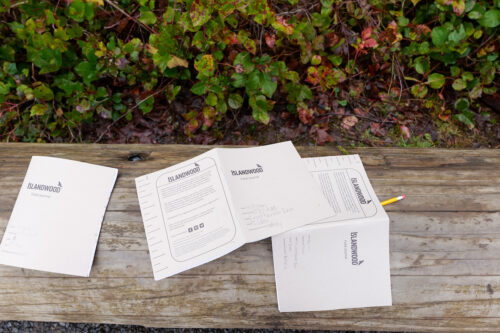As the COVID-19 crisis continues, it’s become increasingly clear that the entire field of environmental…
Author: Maggie Rich
During the 2018 legislative session, IslandWood advocated alongside other environmental education organizations for state funding that would increase access to community-connected environmental learning. As a result of these efforts, the legislature passed $4 million dollars in the state’s 2018 supplemental budget for Next Generation Science Standards teacher training and support. Of that, $1 million was specifically allocated for nonprofits to partner with educational service districts (ESDs).
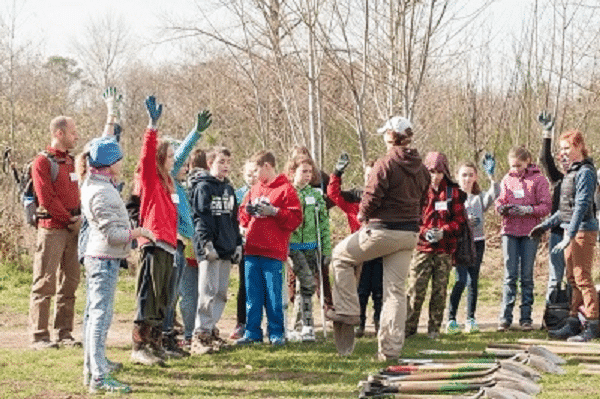
Students participate in a field exploration with IslandWood Urban Programs educators.
This groundbreaking funding creates new opportunities for community-based nonprofits to support teachers in connecting their science instruction to local environmental issues. Organizations like IslandWood, Pacific Education Institute, Washington Green Schools, and Nooksack Salmon Enhancement Association were awarded funding to work with ESDs and Tribal Compact Schools all over Washington state. Working with the Olympic and Puget Sound ESDs, this funding allowed IslandWood to expand our teacher professional development into new communities and increase annual teacher participants from 60 to 300.
Teachers like Kathryn Holder from Glenwood Elementary in Lake Stevens who, after participating in IslandWood’s professional development workshop, shifted her instruction in a way that mirrors the scientific process itself: “I’m asking the students more questions instead of feeding them information. I’m having them think about what the problem is and ways to design solutions to the problem. After testing their design, I’m having students discuss changes to their design that may fix or improve their model.”
Or Aaron Kinion, a 4th grade teacher at Seattle’s Broadview-Thomson K-8 who participated in our Community Waters science unit and teacher training program with Seattle Public Schools: “The biggest connection for my students is realizing that science is not something done only in the classroom…Kids are noticing a lot more potential areas of concern, and are thinking of ways to solve these real-life problems.”
Why Community-Connected Science Instruction?
For more than 16 years, IslandWood has designed learning experiences that help students understand their environment and discover the impact they can have on their community. But our school programs and the educators we prepare can only reach so many students in a single year. That’s why our advocacy focuses on expanding access to experiential education that engages students in solving real environmental challenges in their own communities.
Education that is connected to local environmental challenges isn’t just good instruction. It builds the awareness and critical skills future generations will need in order to tackle real world environmental challenges. It’s also a powerful way for teachers to meet the mandates of Washington state’s adopted Next Generation Science Standards (NGSS).
But how do teachers identify local environmental issues in their schoolyard or school neighborhood? How do they incorporate investigations of those issues into a given science unit? And how does one teacher keep 30 kids focused on learning outside the four walls of a classroom?
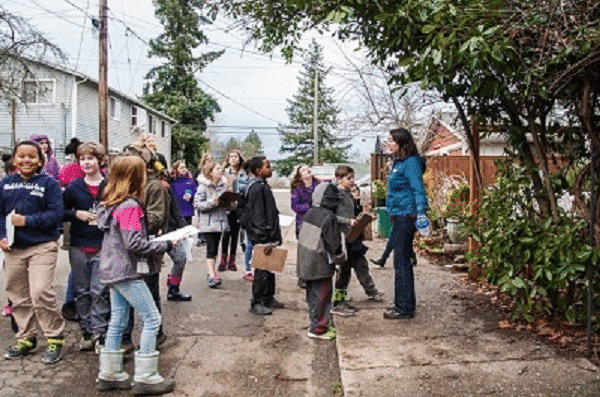
Urban Programs Coordinator Celina Steiger leads a group of students in Seattle as part of the Community Waters Science Unit.
This is where our state’s environmental education nonprofit sector can support schools. The opportunity for nonprofits to support climate change and environmental science instruction is something the Office of the Superintendent for Public Instruction also values, noting: “Nonprofit community-based organizations around the state use many innovative processes and strategies and are best poised to build student understanding and problem solving around local environmental challenges.”
Looking Ahead
We are proud to have increased support in the Washington state legislature for innovative funding that supports public schools in connecting science instruction to students’ lives and communities. Our future depends on our ability to prepare students to work together to solve the most pressing challenges facing our planet. This is work schools shouldn’t have to do alone.
In the months ahead, we will be working with a wide range of stakeholders to make sure that Washington continues to support this kind of environmental education for all students.
Maggie Rich is IslandWood’s External Affairs Manager, working to advocate for public policy solutions that advance the field of environmental education.

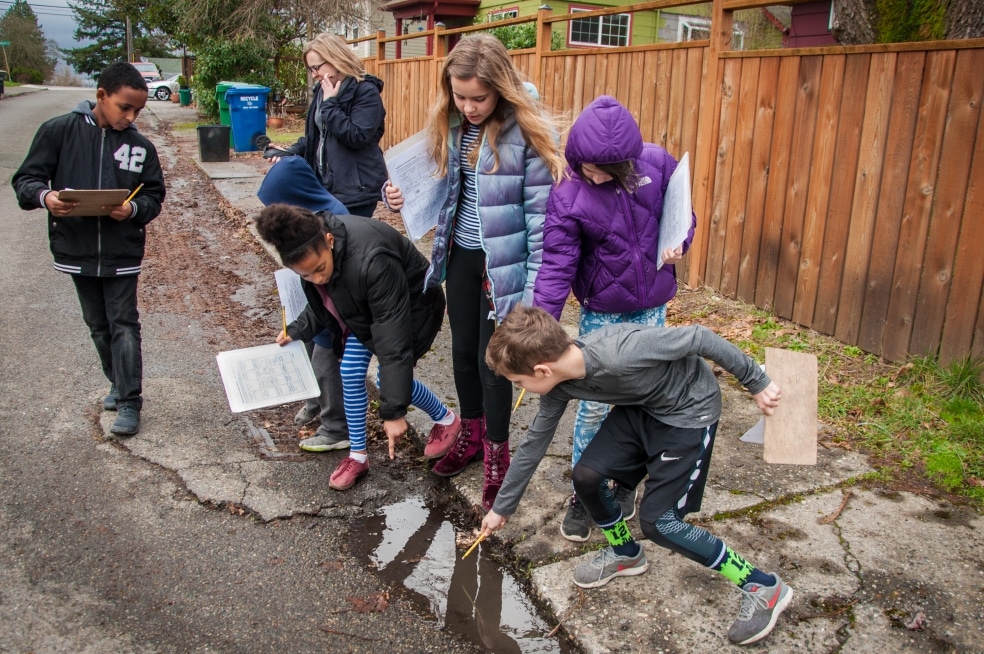
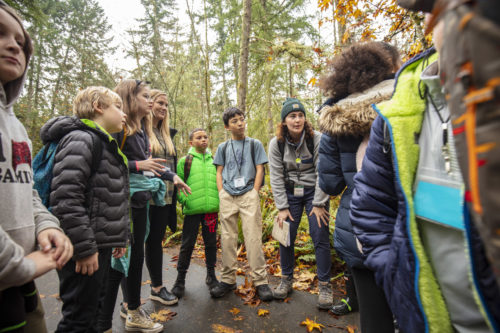
![[Image description: The words "Black Lives Matter" in white on a dark gray background.]](https://islandwood.org/wp-content/uploads/2020/06/BLM-3.png)
